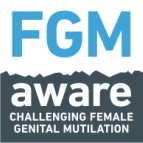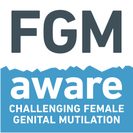FGM and health
FGM has no health benefits and is harmful to girls and women. The health impact varies depending on the type of FGM and the circumstances in which it is carried out. Some women may not experience any health difficulties whilst others may have life long problems. Where a woman has been cut when she was a baby it is possible that she might not be aware that anything has happened to her. Women may not link recurring or chronic
health problems to the fact that they have undergone FGM. For example, women
may experience back and abdominal pain as a result of ongoing infections but
this may be seen as part of the natural condition of being female and/or of
ageing. It is vitally important that communities at risk are provided with
information on the adverse effects of FGM and what health services can do to
help. It is also important that direct questions are asked about FGM in the
appropriate contexts such as GP, sexual health and maternity services.
Possible immediate health issues When a girl or woman is cut immediate health issues can include: severe pain, shock, haemorrhage, tetanus or sepsis, urine retention, open sores and injury to nearby tissue. Girls who are cut without anaesthetic may experience crushing injuries or dislocations as a result of being restrained. When the same cutting implement is used on more than one girl this brings the risk of infection by blood-borne virus. |
Possible long-term health issues
Long-term health issues can include: recurrent bladder and urinary tract infections, pain at menstruation, cysts, infertility, keloid scar formation, fistula, increased risk of childbirth complications and new-born deaths, painful intercourse, loss of sexual sensation, and need for later surgery. Help from Health Services Treatment and support for any physical, emotional or psychological difficulties caused by FGM can be accessed via a GP or by attending a sexual health clinic. When women survivors are identified, for example in health visiting or maternity services, care should be taken to ensure that they are offered a full assessment for any wider health issues stemming from FGM. Deinfibulation can be arranged; this is a small surgical procedure to open up the vagina if it has been closed in type 3 FGM.
Further information on FGM and health can be
found at
World Health Organisation NHS Choices The FGM National Clinical Group website includes a film on health implications. | ||||||||


